Why are cancer outcomes poorer in some population groups in countries with universal access to healthcare? Why does access to optimal cancer care vary between different cancer patients? What are the mechanisms leading to such disparities? These are the type of questions our research aims to answer.
Our ambition is to reduce these inequalities, ensuring that everyone, regardless of their socio-demographic background, benefits from improvements in cancer care. We aim to do this by providing evidence that enables policymakers to address these inequalities through targeted interventions. By identifying and explaining the mechanisms which generate the persisting inequalities in cancer care and outcomes, we can suggest interventions and evaluate existing and proposed interventions in their ability to reduce inequalities.
What we do
The aims of our research are to improve cancer outcomes for all patients diagnosed with cancer, and to reduce the inequalities in cancer care and cancer outcomes. To achieve these goals, we conduct a series of studies which explore how the characteristics of patients and their sociodemographic environment interact with the healthcare system, and how these interactions influence access to and delivery of care as well as cancer outcomes. The evidence acquired helps us to recommend and assess policies which aim at improving cancer outcomes for all patients.
Patient data
To answer our research questions, we analyse in depth the detailed data describing the steps taken by patients along their journey with cancer, as well as the sociodemographic and healthcare context of that journey. These data are collected routinely by hospitals and collated by official bodies such as Public Health England. Such (anonymised) data provide a comprehensive picture of each patient and enable us to better understand the mechanisms leading to differential cancer care and outcomes.
Statistical methods
Analysing complex, observational data requires advanced and innovative methods, some of which are being developed by our team. We also devote specific efforts to develop visualisation tools in order to communicate and disseminate our findings to a wide audience, including to cancer patients themselves, as well as other stakeholders.
Patient and public involvement and engagement
All our research uses data provided by patients and collected by the NHS as part of their care and support. We are proud to include this citation in all our research outputs and recognise the vital importance of the data shared by patients and the direct role they play in our research.
Involving people whose lives have been affected by cancer is an integral part of our research and activities. We work with patient representatives as equal partners; as co-investigators and collaborators on our research projects, from the application stage to the dissemination of results and beyond. These include members of the National Cancer Research Institute’s (NCRI) Consumer Forum, with whom our team are proud to have a long association. Frequent participants in the NCRI Dragons’ Den sessions, we receive input and feedback on our research proposals at their earliest stages of development. As members of our project teams and advisory panels, patients and carers help to guide our research, ensure its relevance and keep our aims and actions grounded in reality.
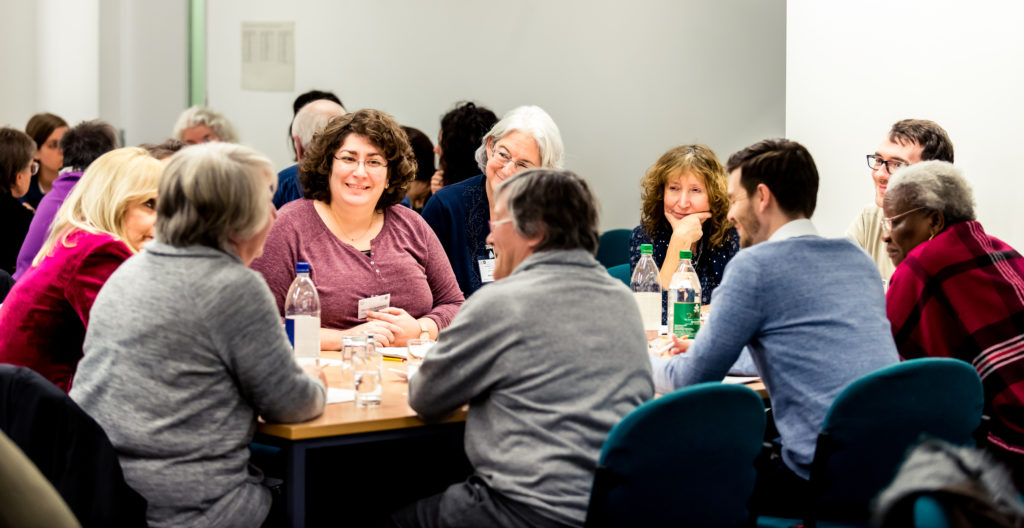
© National Cancer Research Institute
Photo credits: Nick Callaghan, Luminex Photography

Photo Credits: Yuki Alencar, LSHTM

Photo credits: Nick Callaghan, Luminex Photography
In addition to the more traditional forms of patient and public engagement, we are proud to be establishing more innovative ways of communicating our research and sharing experiences with members of the public as well as those affected by cancer. Here are three examples:
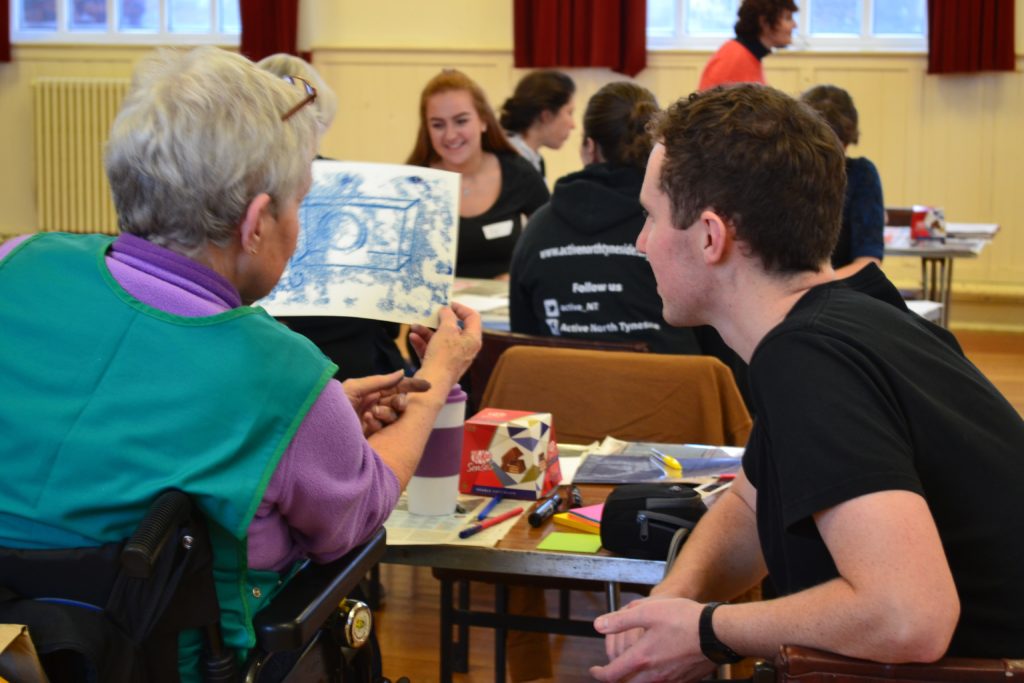
‘Our cancer journeys’ workshop
In November 2018, members of our team coordinated a workshop in Newcastle entitled: “Our cancer journeys: artistic expressions of living with cancer”. The workshop brought together researchers, people affected by cancer and a local artist. Through the creative process of mono-printing, we explored ways to express feelings and share experiences of how cancer had affected our lives. Public exhibitions of the prints produced during the workshop have highlighted that no two people deal with a cancer diagnosis in the same way. This was a unique and effective way of improving mutual understanding between health researchers and people affected by cancer.
* This project, funded by the LSHTM Small grants scheme, has been prepared as a PPIE case study (PDF) to help other researchers prepare their own activities.

The Young Scientists Programme
For a week in February 2020, we hosted a group of five ‘A’-level students as part of the LSHTM Young Scientists Programme. The five students, aged 16-17, came from five different London Boroughs, to spend a week learning about the type of research we do and undertaking their own research project, facilitated by members of our team. Their study, on experiences of health care services, involved gathering data, analysing it and presenting the results in a seminar. This was an opportunity for us to learn about the interests, motivations and concerns of young people in relation to our research, and enabled us to bring them insights and opportunities to learn about how research is done, and research as a career option.
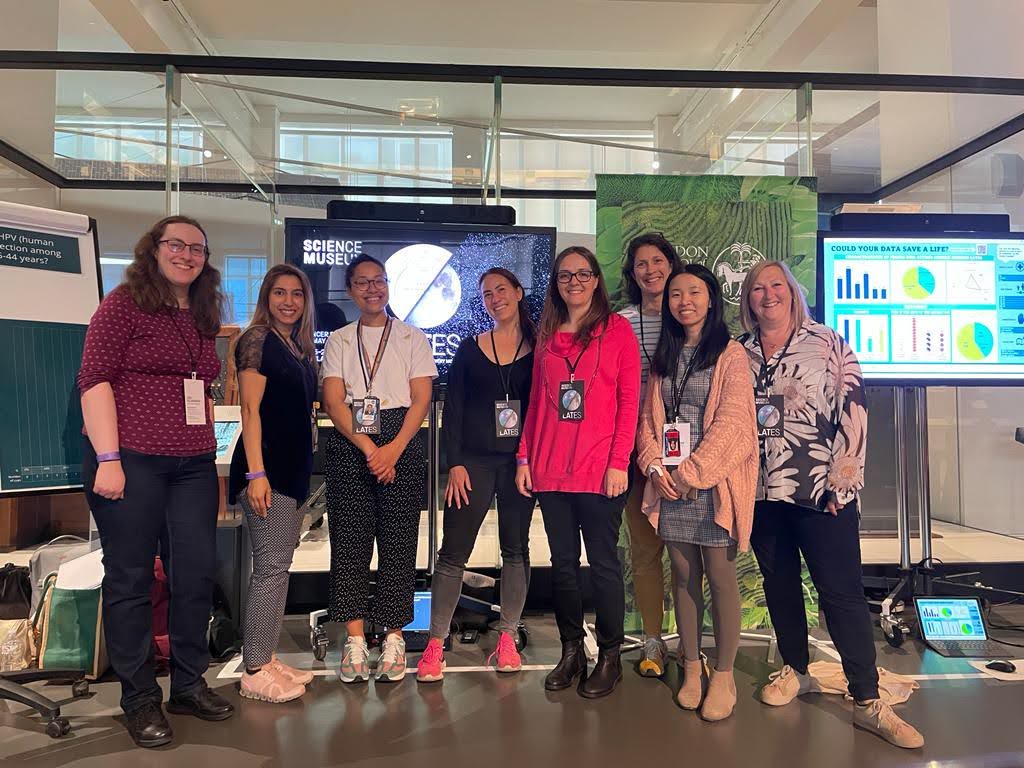
Science Museum Lates
In May 2022, the London Science Museum’s Late (SML) Event was themed around their new exhibition on cancer. Members of ICON joined with other cancer researchers at LSHTM to present two interactive activities for attendees to learn about us and our research. There were over 2000 attendees at the event and it was a fun and stimulating way to engage with people, share what we do and hear opinions and comments from the public.
ICON’s Dr Laura Woods also participated in a panel discussion on inequalities which drew a diverse audience and some really great questions.
The SMLs are free, adult only, after-hours events that take place once a month. We hope to be back there again soon!
Research involvement
We gather feedback and evaluate all our activities, taking great care to ensure that the individuals who participate in our activities or get involved in our research benefit from their involvement with us. Our research is certainly enriched as a result of our interactions with them, and the positive impact of our PPIE activities on our research staff is evident from their enthusiasm and commitment to it.
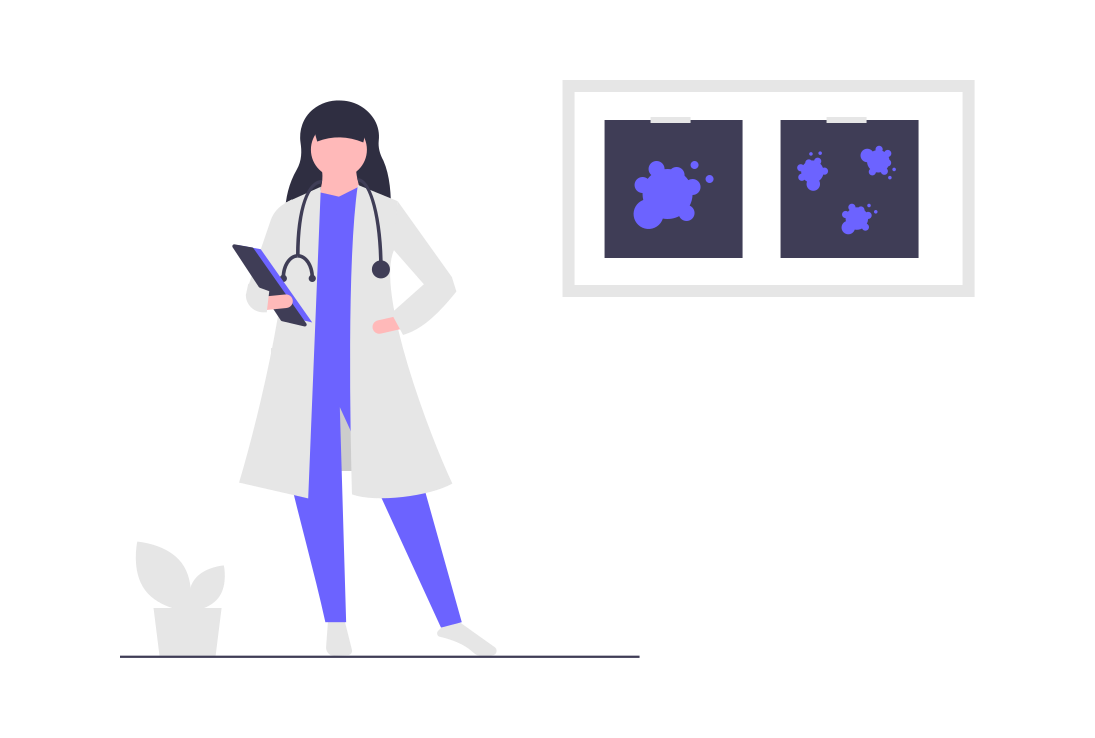
Understanding patient data
We are also pleased to align ourselves with advocacy groups such as “use MY data” and Understanding Patient Data, who are helping to raise the voice of patients and the public who are passionate about having their data used for research to improve the lives of all.
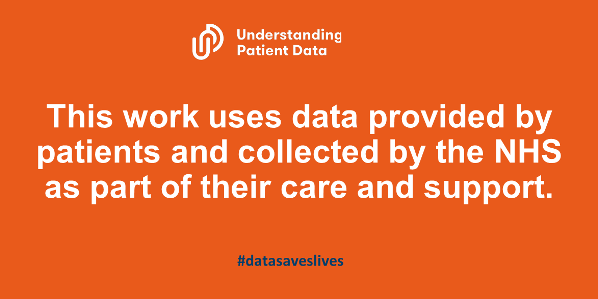
For a broader view of cancer research at the London School of Hygiene and Tropical Medicine, see the blog here.
Security and confidentiality
All of our research using data about patients with cancer is approved by the Research Ethics Committee of the Health Research Authority. The HRA is the UK’s statutory body that oversees access to health data for research, under prevailing law (Data Protection Act 2018, NHS Act 2006 and the European Union’s General Data Protection Regulation 2016). The annual reports are in the public domain on the HRA web-site.
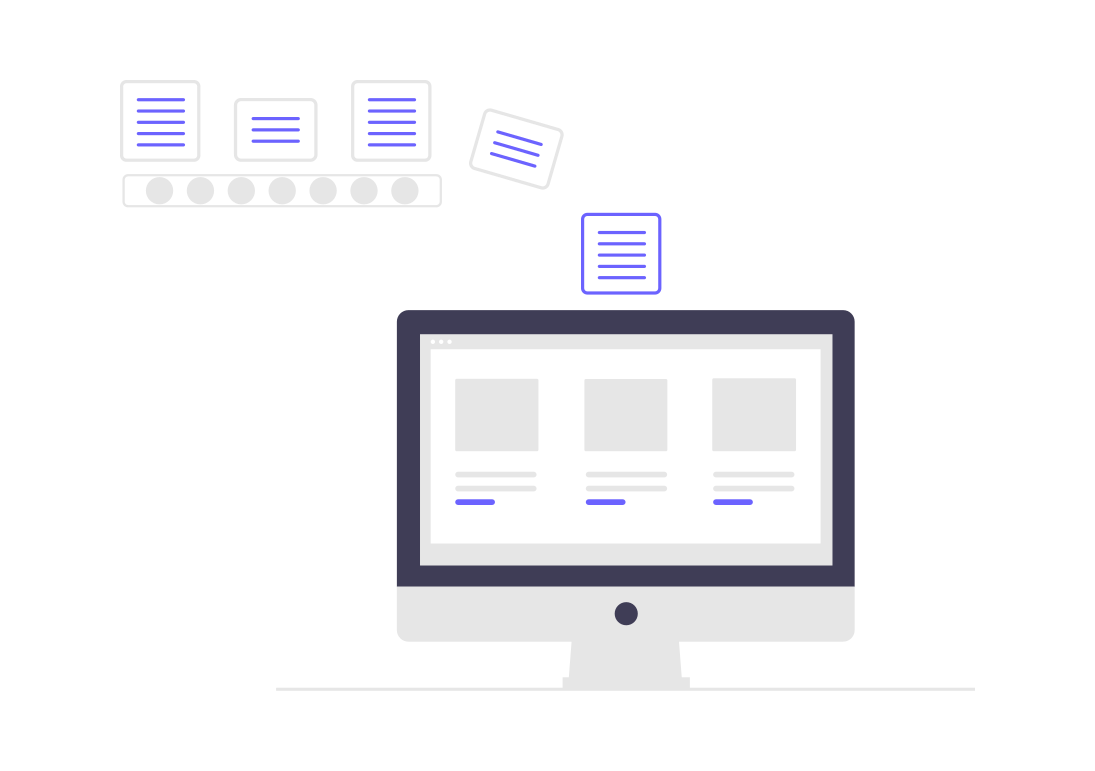
All our research is also approved by the Ethics Committee at the London School of Hygiene and Tropical Medicine. To ensure that we maintain the physical and electronic security of the data we hold, we maintain our own internal data management and security policy.
Last updated on November 10th, 2021